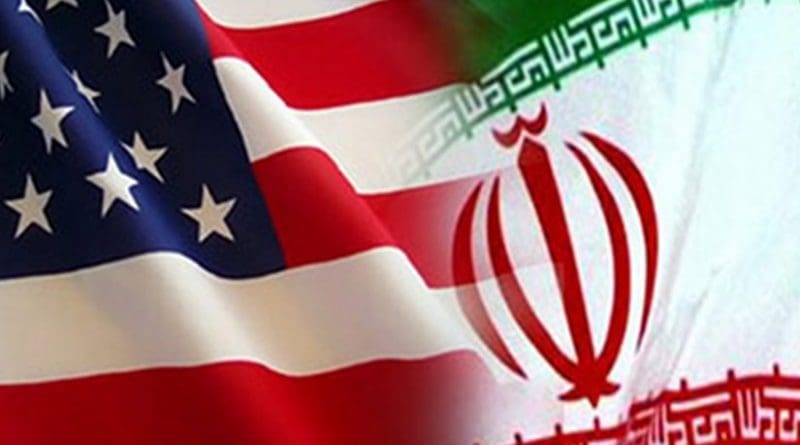To Survive, Iran’s Regime Will Have To Talk To The ‘Great Satan’ – OpEd
By Arab News
By Camelia Entekhabifard*
There is a wave of protests engulfing cities and towns in Iran, with slogans demanding a change of regime because of its inability to address the financial crisis, but the demonstrators are unsure about how they can bring about change peacefully.
The unrest began last Tuesday, nearly a week before US President Donald Trump implements the first round of renewed sanctions on Iran on Aug. 6. The price of gold and foreign currency has rocketed in the past couple of weeks, with fears of harsh economic consequences and the possibility of a confrontation between Iran and the United States.
However, the regime has developed its intelligence network well over the past 40 years, throughout the country, so it is difficult for people to protest without risking arrest — or, worse, their lives.
Nevertheless, Iranians have been demonstrating since December 2017 against the high cost of living and the systematic corruption within the system. They are asking why the national wealth has been squandered abroad on Hezbollah, and in Syria and Gaza, and they want the government to think of their own people first.
With a public outcry and heavy sanctions looming, there is no clear sign of a plan from the clerical regime to tackle these issues, to come up with a project or a proposal to ease the internal and international pressure, or make any changes in their behavior.
Even the temptation of President Trump’s offer of unconditional negotiations with Tehran was officially left unanswered, as the two major factions in the regime struggle for power.
Mohammad Ali Jafari, commander of the Islamic Revolutionary Guard Corps (IRGC), jumped the gun and said the Iranian people would not permit any politician to sit down and talk to Trump. Politicians in Tehran had not even had time to digest the offer from Trump before Jafari rejected it, with comments that illustrated the IRGC’s fears that successful negotiations could limit their regional presence, and their spending.
Clearly what the hard-liners and the IRGC have in mind is to impeach President Hassan Rouhani for his mismanagement and inability to address the economic crisis, hold elections and put one of their allies into office.
In the absence of any involvement by the Supreme Leader, Ayatollah Ali Khamenei, the hard-liners fear that the current government, with the aim of improving relations with the US, and with the support of the public, will end the IRGC’s advantages and completely change the path of the Islamic republic. For the IRGC it is important to hold on to its base until the supreme leader’s succession is clear.
They face opposition. Ali Motahari, the deputy speaker of parliament, told Jafari bluntly that either accepting or rejecting Trump’s offer of talks was no business of the military, and the decision would be taken by Iran’s highest authorities.
Rouhani and his foreign policy team will be in New York in September for the UN General Assembly; both he and Trump will deliver speeches on the same day, Sept. 25.
It is likely that low-ranking members of the Iranian delegation and Trump’s team will meet to hear each other’s point of view before the regime decides whether to accept Trump’s offer of talks. On one side, ordinary Iranians are shaming the Islamic republic in the eyes of the international community by demanding regime change. On the other side, the “great Satan” is ready to shake hands and save the regime from this fate. If they want to survive, their choice is clear — meet the “great Satan.”
*Camelia Entekhabifard is an Iranian-American journalist, political commentator and author of Camelia: Save Yourself By Telling the Truth (Seven Stories Press, 2008). Twitter: @CameliaFard

